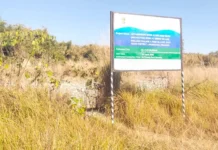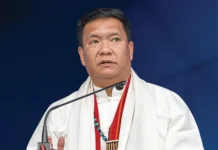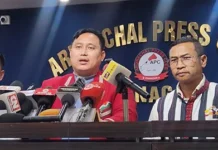[ Rishita Barman ]
The 2018 ASER report gives a dismal picture on the status of school education in Arunachal Pradesh.
The report indicates that of all children enrolled in standard VIII in Arunachal Pradesh about 70 percent can read at least a standard II level text. After a drop in enrolment from 85.9 percent in 2012 to 68.1 percent in 2016, this figure has increased to 70.1 percent in 2018. The percentage of out-of-school children in Arunachal is slightly above the national average. This number still remains high for 15 to 16-year-olds with 8.6 percent of the girls and 11.5 percent of the boys in this age group not enrolled in schools.
Arunachal Pradesh also registered a fall in the pass percentage in the All India Senior Secondary Certificate Examination (AISSCE) conducted by the Central Board of Secondary Education (CBSE). Arunachal Pradesh lies far behind the other states despite the fact that the overall education rate has increased in the country.
The Right to Education (RTE) Act that came out in 2009 guarantees free and compulsory education for children aged between 6 to 14 years in India, making it a fundamental right. It prescribes minimum standards for elementary schools. The Act keeps a check on all schools by mapping out roles and responsibility of the different stakeholders of education to enhance the quality of education in the country.
The despairing Unified District Information System for Education data shows that only 1.3 percent of schools in Arunachal Pradesh comply with the RTE Act, making the state’s school education inaccessible and of poor quality that is only further marginalising children from vulnerable groups.
Education during the unprecedented times:
The global crisis of the Covid pandemic has negatively impacted quality education and has increased pressure on teachers, parents, school leaders and students. However, the crisis has stimulated innovation within the education system.
As a response to the devastating affect left by Covid-19 upon school education, the Deputy Commissioner of Changlang district, Dr Devansh Yadav has initiated a ‘Learning Continuity Program’ which is developed and implemented by India Foundation for Education Transformation, an organization that works in the hilly region.
The programme aims to solve the problem of low foundational learning and low pass percentage in board examination by directly running online classes in 12 government secondary and high secondary schools located in Changlang district.
The state of Arunachal Pradesh is reeling with high failure of students in their class X and XII board exams and a severe crisis of foundational learning in primary grades students. The Covid-19 pandemic has magnified these educational crises more than ever in the areas. As schools are shut across the country, children from backward tribes and communities, unlike their privileged peers in cities in other parts of the country, are experiencing significant disruptions in already inconsistent routines and less-than-adequate resources critical to learning, nutrition and socio-emotional development.
As the board exams for CBSE class X and XII is just a few months away the disorder is not only widening the already existing learning gap but also taking a huge toll on the mental wellbeing of students.
The ‘Learning Continuity Program’ is developed to ensure that children continue to learn and overall ensure children’s mental wellbeing during the period of school closure. The backbone of the program is the enthusiastic group of interns coming from across India to work closely with the government teachers. They deliver online lessons to nearly 5000 students through engaging content like worksheets, videos, podcast etc making the entire process of virtual learning less monotonous.
Nidhi Kothari, a young intern from Nashik, Maharashtra, who is also pursuing her Master’s degree, teaches mathematics virtually to class 10 students of Gotampur Government School.
She says this internship is her way of contributing to the society during the time of the pandemic. She feels that it is rewarding to see students open up and gain interests in mathematics through her lessons which she tries to keep interesting through video content.
Sunita, another intern from Bangalore, who has been in the teaching profession for the last 15 years, currently teaches chemistry to class X students of Sompoi Government School. She highlights the challenges of teaching children from a rural area. Highlighting the poor foundational learning of the students, she observers the difficulty the students face in grasping the content of the higher classes as they lack basic language comprehension ability.
However, half the battle is won when students with great zeal attend these virtual classes.
Angam a class 10 boy from the government school in Miao states that his virtual English language lessons have been the most interactive class out of all and that he is made to practice speaking in English in the class. Robi studying in class 9 in the government school at Dumpather says, she enjoys the virtual classes and the worksheets that they get to solve after each lesson.
National Education Policy 2020-A way forward:
The much-awaited National Education Policy 2020 has come up with some welcoming solutions. One of its objectives aims to bring pre-primary schools under the modality of the national education system to address the nation’s poor foundational literacy and numeracy. It sees foundational learning as an ‘urgent and necessary perquisition to learning’ thus forming a strong basis for universal education in the country.



